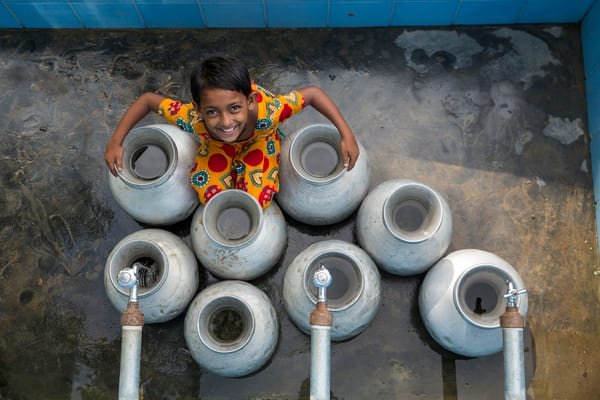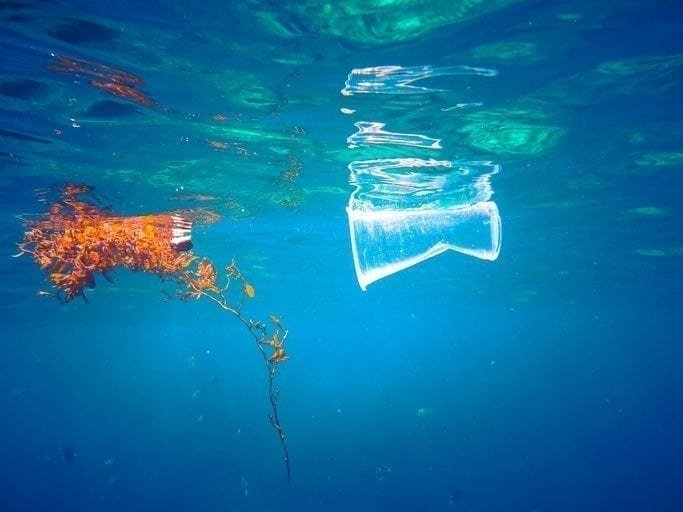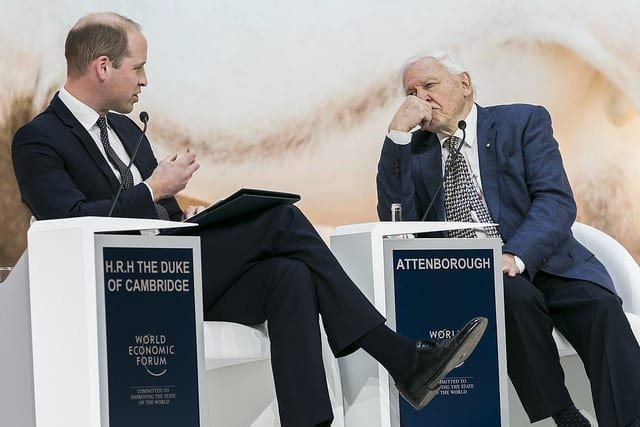Main image: WaterAid/ DRIK/ Habibul Haque
As part of his Sustainable Markets Initiative, HRH The Prince of Wales is today, on World Water Day (22 March), launching the Resilient Water Accelerator; the aim is to reach 50 million people in water-stressed areas with reliable and sustainable water sources by 2030.
This will give people access to clean and dependable water services for vital protection against threats like the current Covid-19 pandemic and the devastating impacts of the climate crisis.
The Resilient Water Accelerator, which is being led by international development organisation WaterAid, will bring together key governments (United Kingdom, Bangladesh, Burkina-Faso, Nigeria, the Netherlands, city of Maputo), private sector leaders (Deloitte, Arup, CDC Group), development banks (World Bank), development agencies (United Nations Development Programme, UNICEF, Water.org) and experts (World Resources Institute, International Water Management Institute, Sanitation and Water for All) to ensure that more finance is fast tracked towards providing and protecting communities’ vital water services.
Boosting finance for water
The launch of this initiative follows a pledge at the Sustainable Markets Initiative’s Roundtable on Water in London, at WaterAid’s Water & Climate Summit, to work towards boosting available finance for climate-resilient water programmes.
Over the last year, the Sustainable Markets Initiatives’ Water & Climate Taskforce has been working to turn this pledge into a reality.
This Task Force will integrate with broader SMI sustainable agriculture, agroforestry and forestry projects, to complement the efforts of the Water and Climate Finance Initiative Task Force and the critical role water plays.
The role of water
HRH The Prince of Wales recently hosted a discussion attended by Dr Akinwumi Adesina, President of the African Development Bank; Brian Moynihan, chairman and CEO of the Bank of America; Henrietta Fore, executive director of UNICEF; Justin Abbott, Global Water Skills leader at Arup, Sir Graham Wrigley, chairman of the CDC Group and Betsy Otto, director of the World Resource Institute’s Water Program, amongst others.
Attendees discussed the critical role that water plays in combating the overlapping crises of the Covid-19 pandemic and climate change.
People across the world need access to soap and clean water to wash their hands and help stop the spread of the virus, and water services need to withstand the impact of extreme weather events.
Attendees agreed that urgent action is needed to secure more finance for water programmes.
‘The Covid-19 pandemic has reinforced the need to ensure access to clean water services around the world. Since the first meeting in March of last year, the Water and Climate Finance Initiative Task Force has worked steadfastly towards achieving this, by boosting climate funding for comprehensive scalable resilient water programmes. I am delighted that the Resilient Water Accelerator is launching today, which will work to provide reliable and sustainable water sources in countries that are battling the devastating effects of the climate crisis.
‘I look forward to seeing further cross-sector collaboration and I hope that the Task Force continues to foster a diverse range of partners and proposals to find the ambitious solutions that are all too vital.’
HRH THE PRINCE OF WALES
Building resilience
The Resilient Water Accelerator will identify six locations in Africa and South East Asia where a new approach can be tested to address holistic threats on the ground.
These include pollution of water sources and rising levels of water-stress, exacerbated by dwindling ground-water supplies.
The coalition will work together to show that practical action to build resilience is possible, at a critical year for global climate and health discussions.
The goal is to ensure that finance for water programmes becomes a top priority for governments across the world. The coalition is targeting location finalisation by September 2021, with work on the ground set to begin in January 2022.
 Play Video about This Rock Might Just Save The World
Play Video about This Rock Might Just Save The World Play Video about Play 2 hours of rock
Play Video about Play 2 hours of rock Play Video about Play 2 hours of brook
Play Video about Play 2 hours of brook Play Video about Play 2 hours of sheep
Play Video about Play 2 hours of sheep















































